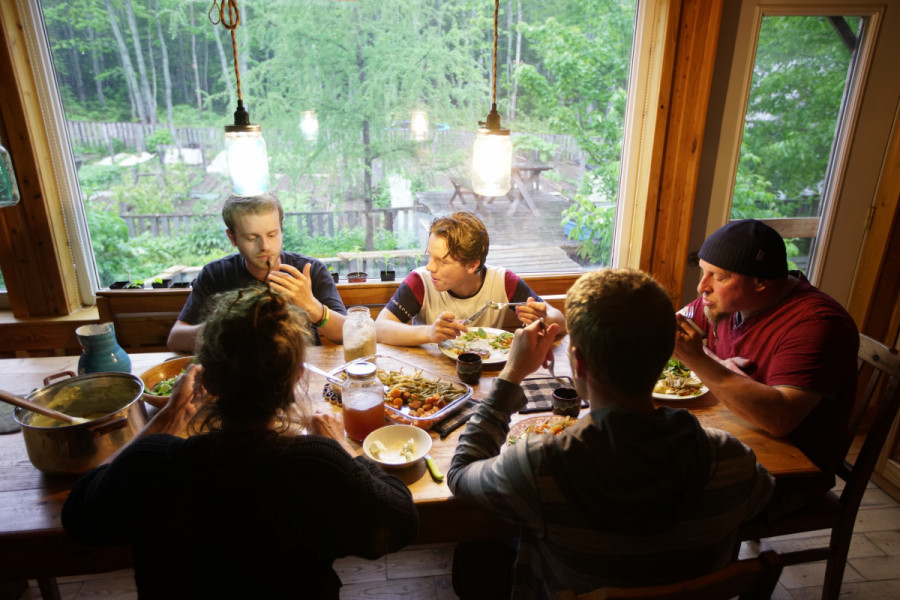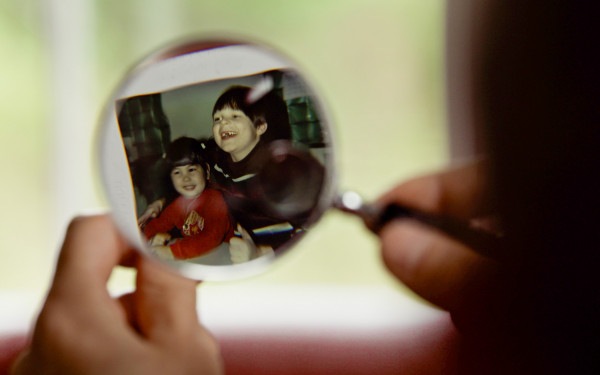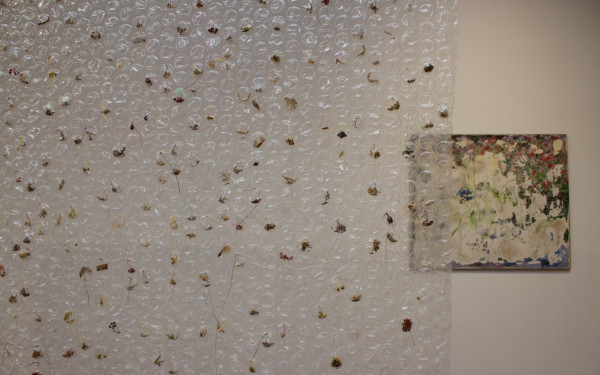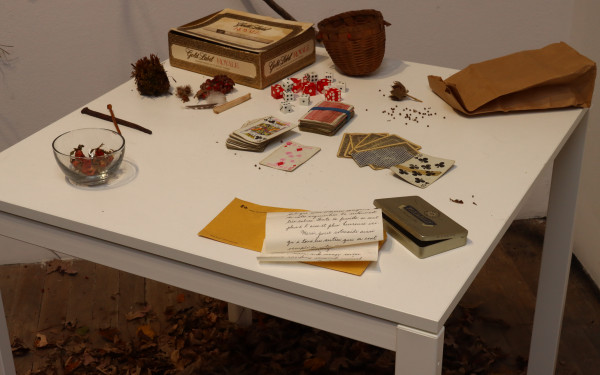‘The Family of the Forest’: A film about modernity and self-sufficiency
Emerging documentarist, Laura Rietveld, explores the Jacob-Mathar family’s strong relation to nature
Almost seven years have passed since Laura Rietveld first met the Jacob-Mathar family.
She was traveling around Gaspésie with her partner and son, staying at their guest house deep in the boreal forest of Gaspé Peninsula.
The Jacob-Mathar family settled there 15 years ago to commit to a self-sufficient lifestyle. Gérard Mathar and Catherine Jacob sacrificed their life in Belgium to raise their sons in an environment bound to nature, where they would slaughter, harvest, and grow almost everything they consume.
Rietveld still remembers the moment she left the house when she first saw the Jacob-Mathar family. She was staring at the family’s garden while drinking homemade balsam fir lemonade on the terrace, listening to their story.
The Jacob-Mathar family built their house, raised farm animals, and plowed the land to make it a substantial garden. They have also created a small enterprise of wild local products, Gaspésie Sauvage.
“My attention was caught by the fact that they live as close to nature as a modern family can,” Rietveld said. “I knew there could be a film there to make.”
Although the family lives in symbiosis with the forest, they are not off the grid. They still have access to electricity, laptops, and they buy bananas and chocolate. All sons attended school in Gaspé, and the oldest one, Côme Mathar, is now completing a degree in history at Laval University in Quebec City.
A modern way to be self-sufficient
After years of work and exchanges with the Jacob-Mathar family, Rietveld was finally able to produce The Family of the Forest, which premiered in Montreal’s theaters on April 8.
Among the overwhelming flow of information on the climate crisis, Rietveld wanted to take a step back, allow the audience to reflect on their connection to nature, and appreciate what it has to offer.
“If we want to make change in our environment, if we don’t see ourselves as part of it, then how are we gonna make real change,” she said.
The film tells the story of the Jacob-Mathar family as they foster close reciprocity with nature. It explores a unique way to connect to nature and offers the audience a reliable commitment to self-sufficiency, explained Katarina Soukup, the film’s producer.
“You don’t have to be apart from society to live a more intentional, artful, and sustainable life,” she said.
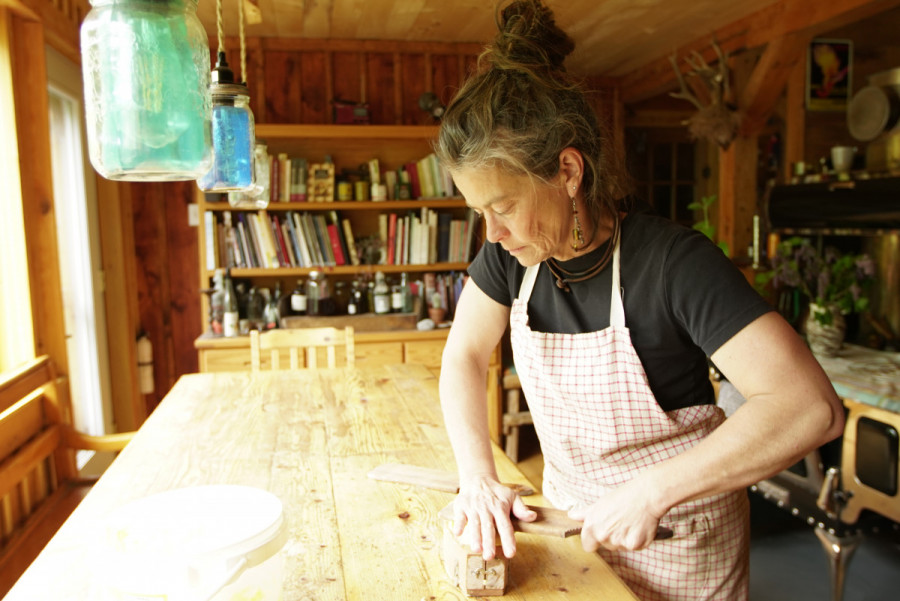
An ongoing process
Now that the three brothers have become young adults, the perpetuation of the family project is at stake.
Yet, Gérard and Catherine want their sons to fly on their own. “What I have done was for the children to be able to live,” said Gérard.
Read more: ‘Evan’s Drum’: A film about the heartbeat of Labrador
The couple provided their sons with tools to become autonomous and independent by returning to the very sources of life. They believe in individual action and small-scale initiatives of self-sufficiency to progress as a sustainable society.
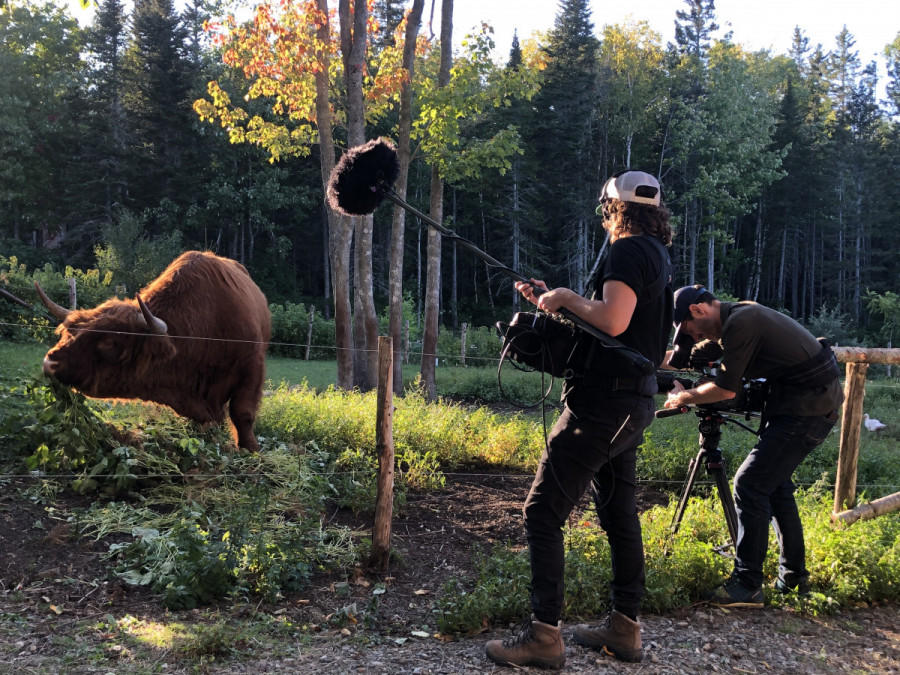
“It is a way of life that comes little by little. You learn to do things as you go,” Gérard said.
The society of overconsumption engenders a loss of autonomy and fundamental knowledge, explained the father. He admits wanting to break free from the dependent and fragile system. To live as self-sufficient was not an objective for the family but a way to get through the world's uncertainties.
“Of anyone I know, COVID affected Gérard and Catherine the least because their life continues the way it is,” said Rietveld. “Not to say that they are not affected by COVID, but the story didn’t change; they make bread, they make cheese.”
It is not about being a survivalist but being resourceful and autonomous regardless of the circumstances, explained Gérard.
Values that will be passed on
Gérard retains from his father this passion for the forest. He remembers the long walks in the forest with his father to harvest mushrooms back in Europe. Now, Gérard wants to pass on this love for nature to his family.
The couple plans on building a house for each son to inherit a safe space. The family already built one of these three houses. It is reserved for the oldest son, Côme, once he completes his degree. “It’s not perfect, but it’s in our image,” he says in the movie.
Although the couple doesn’t want their son to feel obliged to commit to a self-sufficient lifestyle, when Côme is studying in Quebec City, he can’t wait to find tranquility and liberty again back home.
“All I am waiting for is to take the bus back home when the semester comes to an end,” he said. “I miss everything.”
Rietveld herself moved to the countryside to appreciate nature in a way she couldn’t in Montreal. It is the Jacob-Mathar family that inspired her to reconnect with the land and value what it has to offer. She now raises two chickens, a tip-off from Gérard Mathar when the time comes to transition toward food autonomy.
Now that the film is streaming around the province, the director hopes it will “remind us of the beauty around us [and] give a respite” to audiences in this time of crisis.

